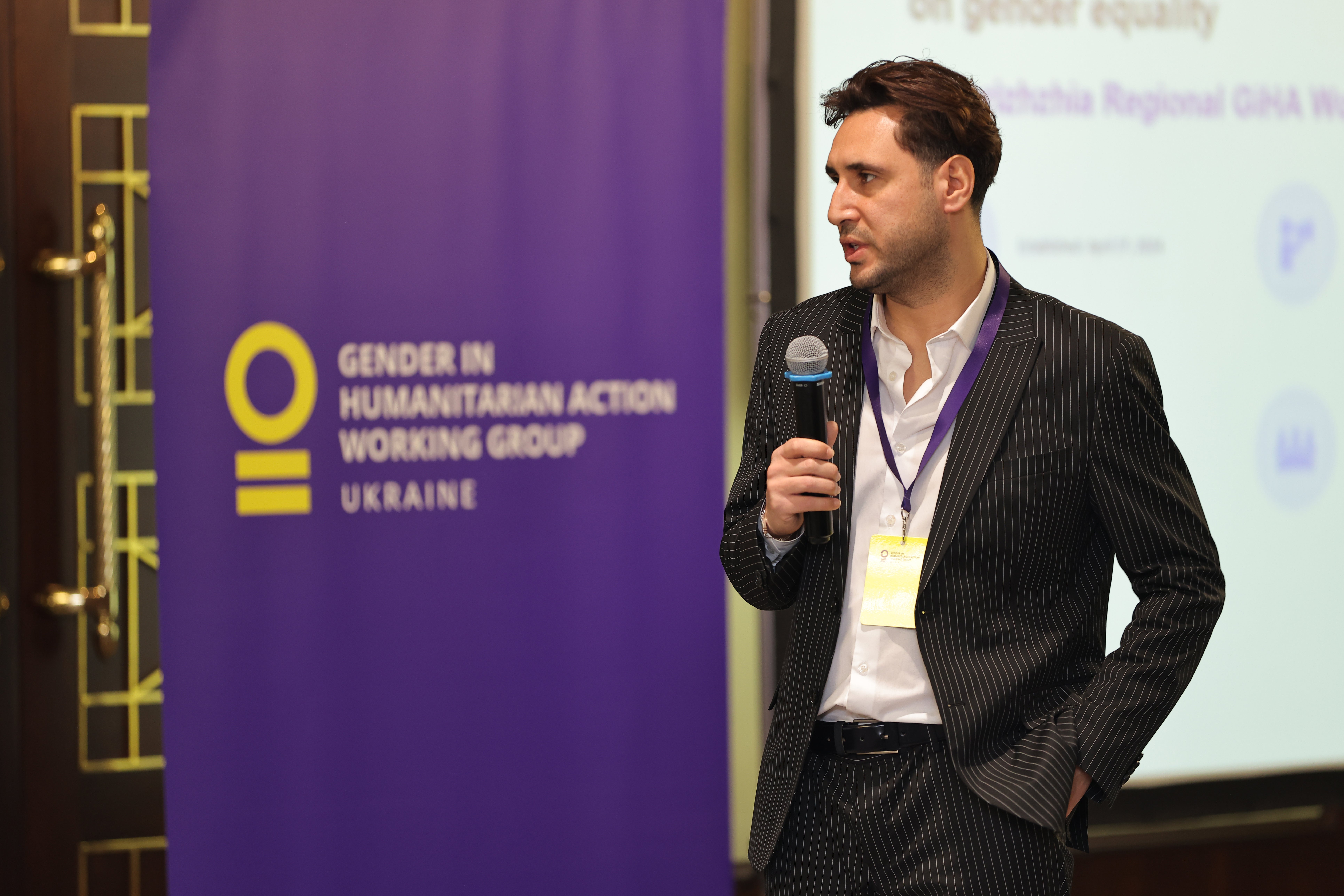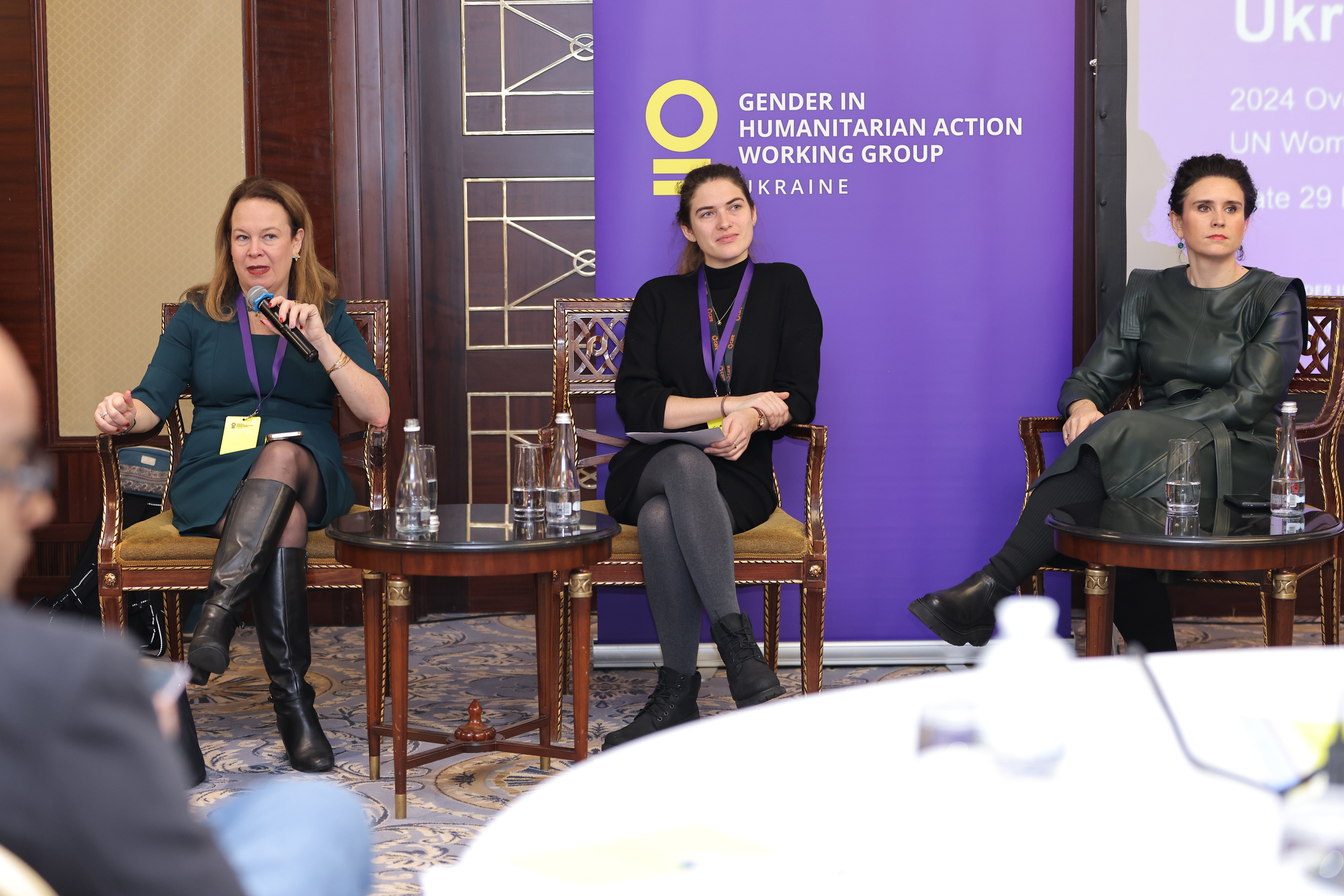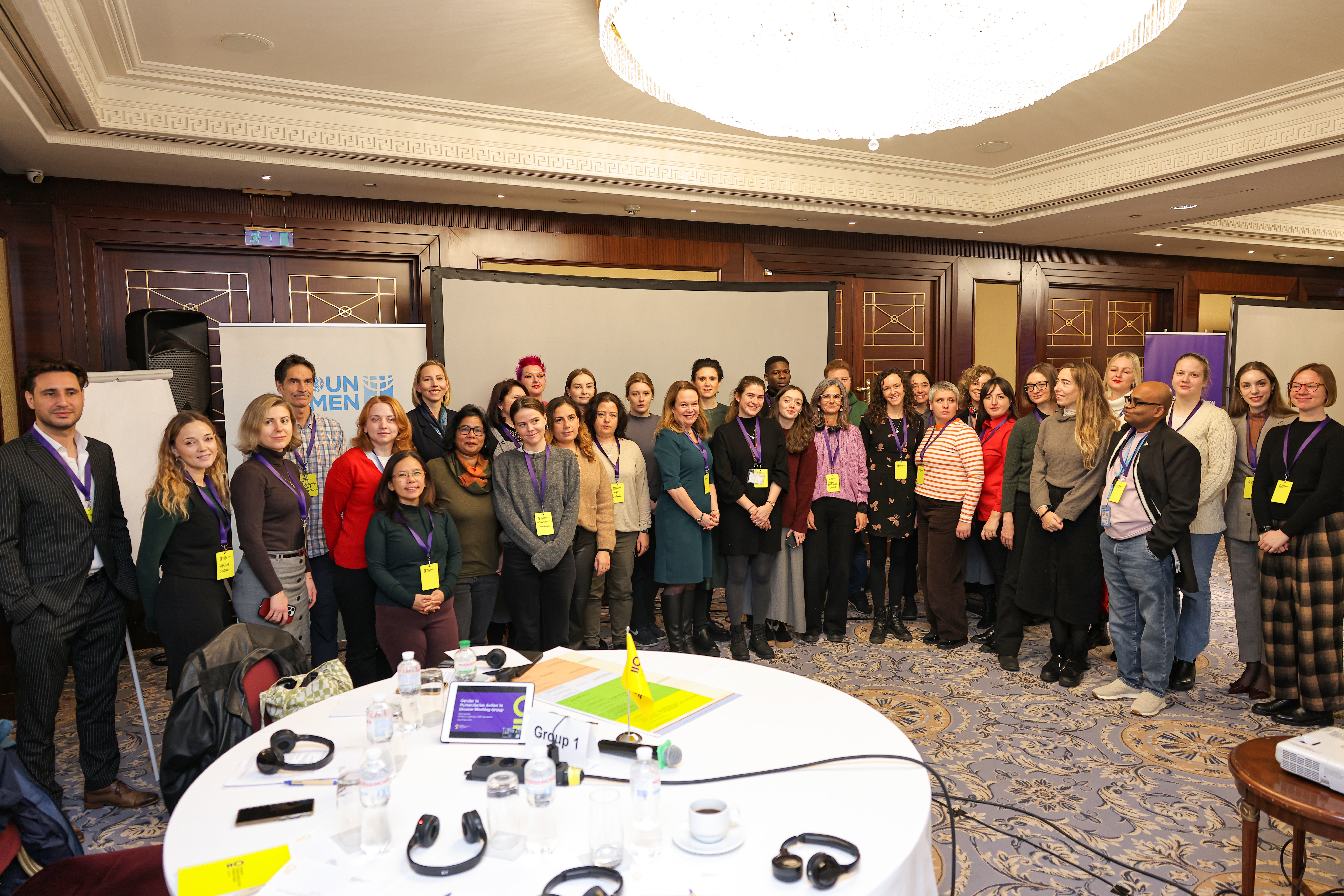Coordinated Efforts, Women's Leadership, and Capacity Building: GiHA Working Group Highlights Key 2024 Achievements and Plans for 2025 in Gender-Responsive Humanitarian Action in Ukraine
Date:

Nearly three years of Russia's full-scale war against Ukraine have significantly impacted the lives of Ukrainians. As hostilities intensify across much of the country, the humanitarian crisis deepens, with pronounced gendered dimensions. According to the Ministry of Social Policy, women account for nearly 60% of the 4.6 million officially registered internally displaced persons.
GiHA operates under a tripartite co-chairing system led by UN Women Ukraine, CARE Ukraine, and the NGO 'Girls.' The working group focuses on advancing gender equality and empowering women and girls within Ukraine's humanitarian response. It also provides technical support and enhances coordination among actors within Ukraine's humanitarian architecture.

Participants of the event, including coordinators of national clusters and working groups, as well as representatives of international and national civil society organizations, women’s rights organizations, and organizations supporting marginalized communities, provided recommendations for the GiHA Working Group’s 2025 Work Plan and discussed key activities from the year, including:
-
Coordinated decision-making on gender equality: Strengthened through 12 monthly GiHA Working Group meetings in 2024, engaging around 40 organizations that shared information on research, tools, and plans to inform the humanitarian response in Ukraine;
-
Women’s leadership: Promoted in the development and implementation of national policies and programs related to the humanitarian response;
-
Technical and policy support: Provided on gender equality and the empowerment of women and girls;
-
Strengthened humanitarian capacities: Achieved through over 100 offline and online trainings, benefiting more than 100 organizations on gender-transformative programming.
The event was organized by UN Women Ukraine in partnership with CARE Ukraine and the NGO "Girls", with financial support from the government of Denmark and Austria.
